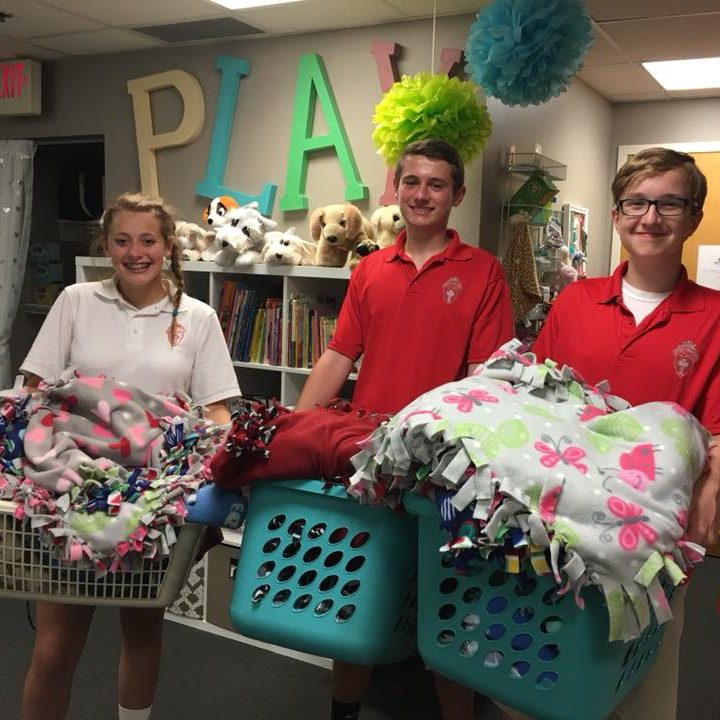Opening Up About an Unexpected Pregnancy
An unplanned pregnancy can stir up a whirlwind of emotions—fear, excitement, confusion, and even anxiety. Whether you’re facing this situation yourself or supporting someone who is, navigating these emotions together with your partner is crucial for making informed decisions and maintaining a strong relationship.
At Heartbeat of Toledo, we want you to know you don’t have to go through this journey alone. Below, we share practical advice on how to approach the conversation with your partner thoughtfully and honestly.
1. Confirm Your Pregnancy Before the Conversation
Before talking with your partner, it’s important to confirm your pregnancy. Early signs, such as a late period, can have many different causes. A home pregnancy test can provide some clarity, but it isn’t always 100% accurate.
At Heartbeat of Toledo’s Your First Look Women’s Center, we offer free, medical-grade pregnancy tests and ultrasounds to provide a reliable answer. Confirming your pregnancy and its viability will allow you to have a more meaningful conversation with your partner, avoiding unnecessary distress over uncertainty.
2. Choosing the Right Time and Place
Talking about an unplanned pregnancy is a big conversation, so timing is everything. Choose a moment when both of you are relaxed and have time to talk without interruptions. A hurried discussion before work or during a stressful period might overwhelm both of you.
The setting is equally important. Choose a comfortable, private environment—such as your home—where you can both speak openly and express your emotions without worrying about others overhearing.

3. Practice the Conversation
This type of conversation can be challenging, especially when emotions are running high. Practice what you plan to say with a trusted friend, family member, or even a counselor. This can help you find the right words and ease your anxiety, giving you confidence before sharing the news.
If you don’t have someone to practice with, even writing down what you want to say can help you feel more prepared.
4. Use Clear and Honest Communication
When it comes to sharing news like this, honesty is the best policy. Share your true feelings—whether they are of fear, hope, or uncertainty. Your partner deserves to know how you feel; this transparency will make it easier to work through the emotions together.
It’s also important to avoid placing blame. Remember, this pregnancy involves both of you and focusing on finding solutions together is far more productive than assigning fault. Use words that show you’re in this as a team. For instance, saying “We are pregnant” instead of “I am pregnant” helps convey shared responsibility.
5. Give Your Partner Space to React
Your partner might not know how to react at first, and that’s okay. Hold space for them, allowing time to process their emotions. Understand that the first reaction may not reflect their true feelings—it could simply be a response to the shock.
Avoid pushing for immediate decisions. Both of you will need time to absorb this new information and decide what steps to take next. Give each other the grace to process emotions in your own time.

6. Address the Range of Emotions
An unplanned pregnancy can elicit a mix of emotions, such as happiness, shock, fear, denial, or even anger. Acknowledging that these feelings are valid and natural helps set a positive foundation for ongoing discussions. Check-in with each other frequently and keep communication lines open so that you both feel supported through this journey.
7. Plan for the Future Together
After moving past the initial shock, it’s time to think about the future. But remember: take one step at a time. Discuss practical matters and your feelings about different options, whether it’s parenting, adoption, or any other possibilities.
Making these decisions together is crucial, ensuring both partners’ voices are heard. If you find yourselves struggling to reach a consensus, seeking outside support, such as counseling, can help you navigate this challenging terrain.
8. Invite Your Partner to Appointments
One way to help your partner feel involved is to invite them to a pregnancy-related appointment. At Your First Look Women’s Center, we provide free ultrasounds and pregnancy tests, which can help make the pregnancy feel more real for both of you. Sharing these experiences can strengthen your bond and foster more open conversations about your future together.

9. Reassure and Support Each Other
While navigating an unplanned pregnancy, taking care of yourselves and each other is important. Make time to get enough rest, eat well, and take breaks when needed. Practicing self-care can be an essential way of managing stress during this time.
Also, allow yourselves moments of joy. Even if the pregnancy wasn’t planned, it’s perfectly fine to feel excited. Encourage each other to celebrate the positives—such as thinking of baby names or imagining your future family. Focusing on these happy moments can provide strength during the more challenging times.
10. Seek Outside Support If Needed
It’s okay to ask for help. Pregnancy centers like Heartbeat of Toledo offer options for counseling, parenting classes, and other support services to help couples navigate this journey.
If communication becomes difficult or emotions are overwhelming, consider professional counseling to facilitate a supportive and open dialogue. The goal is to ensure both partners feel valued and heard throughout this process.

Need Local Help?
Navigating an unplanned pregnancy with your partner is a journey filled with ups and downs. It requires compassion, patience, and honest communication. By choosing the right time, speaking openly, and supporting each other, you can face the future together with confidence. We’re here to help you every step of the way, offering free, confidential services that can provide the guidance and support you need during this important time.
If you or your partner need support, please reach out to us; we’re here for you. Remember, you are not alone.






